Restoring humanity one uncomfortable truth at a time
7 min readAt least 250,000 people protested in Glasgow on Nov. 6, calling out leaders attending the UN Climate Change Conference for their hollow and performative politics. The action needed to address the dire climate crisis remains agonizingly out of reach.
Just like the tobacco industry spent decades ghosting the public and hiding research linking smoking to lung cancer, fossil fuel industries are skirting around admitting their direct role in the climate crisis. Marketing from corporations continues to abuse the sincerity of intent of a consumer by dressing up their products and consumerist lifestyle in new clothes with more ‘green’ choices. Systemic and structural changes needed from governments, corporations and the fossil fuel industry is reoriented towards controlling the consumer so that large-scale industries can continue to pursue their bottom-line.
In the eye of this hurricane where my despair angrily storms there is one consistent place where I gather hope and calm. The thousands of activists and hundreds of coalitions around the world who have decided to call out people in power. Most old white men in the U.N. boardrooms aren’t going to live through the worst impacts of the climate crisis. These young people are from every stretch of the globe, not armed with guns, but with creativity, harsh truths about the history of our modern era and radical hope.
Among these activists are two teenage Pakistanis from Balochistan -- Aisha Akbar and Yusuf Baluch -- participating in a climate justice coalition organized to make their demands heard during Conference of the Parties or COP26, an acronym for the UN Climate Change Summit in Glasgow that took place from Oct. 31- Nov 12 in Glasgow.
Akbar shared from the summit on her Instagram, “Listen to voice of MAPA (most affected people and areas). Listen to voice of Baloch.”
When we spoke, Baluch shared, “It was extremely difficult to work in Pakistan on these issues…we don’t have resources to learn about climate issues.” He became connected with Fridays for Future movement through social media last year. “So many communities being affected by climate disasters and they don’t have resources to rebuild, or move. This motivates me,” he said.
I will host a live webinar with both Akbar and Baluch at 3:00 p.m., on Saturday, November 20 on Aaj News to hear about their journey to becoming international climate activists.
It is apparent there is a significant number of people who are not buying the Band-Aid solutions being offered by governments, international bodies, and corporations anymore. As the crisis deepens in the present (not in the future) we will all be forced to change because most of the systems that make up our global economy will perish under the pressure of catastrophic climate events (which are already happening).
Notice the difference in these two images:

I observe that the global climate justice movement is uncannily similar to the insane internal politics of Pakistan where a few benefit from exploitation and domination of the masses. In Glasgow a few men, and even fewer women, who lead the world’s richest governments, are politely discussing the end of the world, as we know it.
Few in Pakistani media have brought attention to climate activists who petitioned through rain and cold weather in Glasgow. Simultaneous protests were recorded in many countries around the world on Nov. 6 but there is no report that any local outfit participated within Pakistan.
It’s clear the Pakistani news media is inundated by immense internal challenges with the economy, inflation, and increasing prices of petrol. An already overwhelmingly stretched thin populace trying to make ends meet while the Pakistani elite continues to concentrate its wealth. Let’s not forget the obscene display of callousness with wedding season right around the corner, where thousands of rich people in Pakistan live as if they are the only people on this planet.
I’ve heard of food being flown in from as far as Europe for wedding guests. I’ve attended weddings where the flowers are all imported from Thailand. I’ve been in designers’ studios where one outfit costs the same as a house in Orangi Town. The list goes on, showing how clearly the elite are cut off from the realities of the majority. Most young people are still groomed to care mostly about university acceptance, jobs, and living a life of bourgeois comfort. And until things really penetrate (though I’m not sure what else we are waiting for?) it seems like young Pakistanis from the elite class seem largely quiet on the most important matter for their futures.
In a recent conversation with reportedly the youngest climate activist in Pakistan, Emaan Danish, I learned about her passion for educating young people about climate change.
“Don’t take climate change as a joke,” she warns. “Many of my family members don’t take it seriously, and they still use plastic. When I go to schools and tell them about alternative forms of energy, even the rich schools, even they don’t change anything.”
Danish’s activism currently occupies a middle ground between those who are calling for immediate radical measures and those who act as if there is not need for any urgent action.
“I’m actually scared about what is going to happen in a few years. When I figured out about the sea otters, the penguins, and the arctic melting, the polar bears, I was honestly really scared. I don’t want to make other people scared… like other activists do… I want them to know about climate change but not be scared…We can’t just drop to zero. Let’s just limit it… Limit our travel. Limit our use of fossil fuels. Even my two year old brother has learned how to shut the lights off to save energy,” she said.
I wondered while I watched her animated face what it must be like to be a 10-year-old worried about the end of the world, especially while living in a mega metropolis like Karachi. I thought of my recent visit to Lahore, just declared the most polluted city in the world. I thought of Danish, who loves to travel up north in Pakistan, and how seeing the increase in garbage there propelled her to passionately advocate the need to do better for our environment.
When we teach our children about the importance of climate, environment and the role we can play, do we also give them the tools to process the fear of their world changing rapidly? Do we have the inner resources to grieve the many losses of animal life, habitable places, and ways of life? Do we have the courage to stand with the knowledge that too many things have been set in motion towards irreparable damage and are unfixable?
I agree with Danish: using fear as a mobilization tool can have the opposite of the intended effect. How do we mobilize for change without singularly focusing on doom, nor be lured by false positivity, and create avenues for solutions that move beyond our collective black and white thinking?
It’s hard for me to wade calmly in a sea of questions that disturb me at the core. I have to force myself out of imagining a waking nightmare for my children’s future. I have to clutch on clichés that help me take the next step in the changing landscape of being human, especially while being alive at a time in history like no other.
I remind myself that waking up is better than denial, despite how impossible the path to recovery and restoration may seem. I remind myself the paradigms of thought that we have been indoctrinated with will not light the way. I look to others who are leading the way, and it is obvious there is one group that has continuously advocated for living in balance with the earth: Indigenous communities whose ways of life have been so cruelly marginalized in the last 500 years.
How do we incite 64% of Pakistan’s population that is under 30 about the climate crisis when 39% of the population is considered under the international poverty line and is rightly preoccupied with surviving?
I observe a thick emptiness that those with the means will again enjoy the benefits on the backs of the most marginalized. Even if we are not meaning to exploit, our voices, including mine, get space. When do we address that climate justice is inextricably tied to economic justice? Internally and globally. There are no neat compartments in a crisis that threatens our very existence.
Indigenous voices from North and South America, Australia, and African countries are finally being amplified in the current climate justice movement. I have to ask, what are we doing to amplify the voices of indigenous people in Pakistan, who still live on the land, farmers, fishers, arts and crafts men, and the millions who live in deplorable conditions in the vast countryside of Pakistan. When 25% of Pakistanis (mostly urban) have access to Internet, the medium by which so much social organizing is achieved, how do we make our climate justice movement more inclusive of these voices?
I don’t have answers, do you?
The writer teaches yoga in Islamabad where she lives with her husband and three sons. She tweets at @AishaChapra
For the latest news, follow us on Twitter @Aaj_Urdu. We are also on Facebook, Instagram and YouTube.



















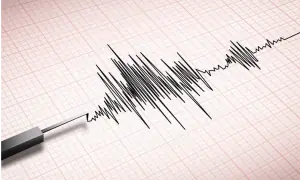

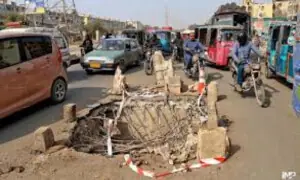
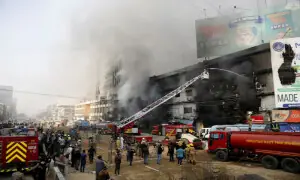

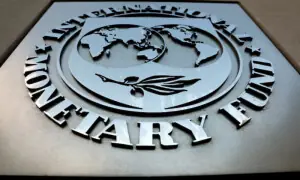

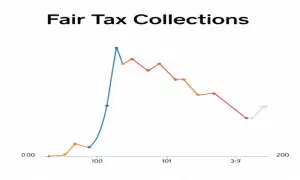
Comments are closed on this story.